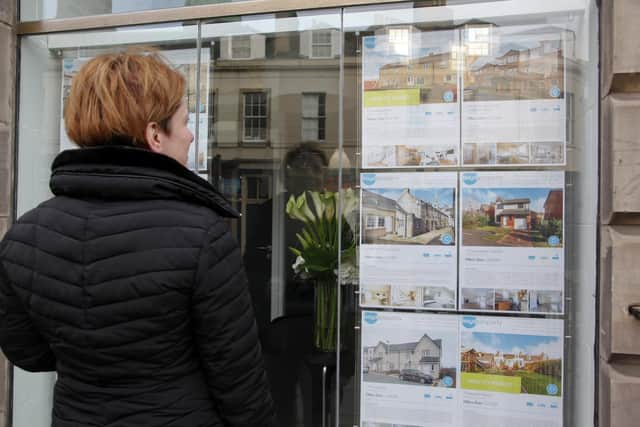When will we reach the LBTT tipping point? - David Alexander
You can’t get blood from a stone, but it seems you can get a lot of money from Scottish homebuyers. That is the only conclusion that can be reached by the latest statistics on Land and Buildings Transaction Tax (LBTT). Scotland’s answer to stamp duty raised £628.1m in the 12 months to May 2024. This is £8.5m higher than the previous 12 months in 2022/23 when £619.6m was raised.
This is nearly two thirds of a billion pounds from Scottish homebuyers every year with property investors and second homebuyers contributing a substantial chunk of this money through the additional dwelling supplement (ADS). Of the £628.1m taxes raised £195.4m is from ADS, which is 31.1 per cent of the total raised and is £36.9m higher than the same period in 2022/23.
Advertisement
Hide AdAdvertisement
Hide AdThe ADS figure for May was £21.2m, which is the highest ever monthly figure and is £3.3m up on the previous month’s total of £17.9m – which was itself the previous highest ever figure. Although landlords and second homeowners are often criticised by the Scottish Government there is little doubt, they are major contributors of tax each year.


Then there is the issue of the level when tax is paid with properties valued above £325,001 contributing 82.8 per cent of LBTT. The 16,710 transactions above this threshold raised £358.4m, which is an average tax levied per transaction of £21,448.
These are the people with the ‘broadest shoulders’ who must pay the most in Scotland. Those earning £28,000 and above and buying homes with more than £325,000 are seen as the wealthy in Scottish society.
Yet an income of £28,000 encompasses a wide range of jobs while a house worth £325,000 is not even the average price of a home in some parts of Scotland. When you look at the price of new builds there are many areas in Scotland where prices are considerably higher than this level, with East Lothian the greatest at £404,478.
Perhaps surprisingly these higher property and personal taxes don’t appear to be putting people off. The housing market is stronger than any other part of the UK and people continue to want to live and work in Scotland


This is, undoubtedly, a good thing. We want people to come here, to make Scotland their home and, as important, we want to ensure that our talented and dynamic young people will stay here to create a stronger country in the future.
The risk is that higher taxes may begin to make those from here think about moving and those wanting to live here be put off by a much higher cost of living than our nearest neighbours in England or Europe.
There will come a tipping point at which people begin to see the benefits of life in Scotland being outweighed by the higher costs on income and property. At that point the higher tax regime will become a burden and an encumbrance on growth.
Advertisement
Hide AdAdvertisement
Hide AdKate Forbes has already indicated that taxes are unlikely to increase and that the new leadership in the Scottish Government will examine the existing taxation levels. Any review of personal taxation must also examine property tax levels to ensure a fairer system exists in Scotland to create a level playing field with the rest of the UK.
David J Alexander is CEO of DJ Alexander Scotland Ltd
Comments
Want to join the conversation? Please or to comment on this article.